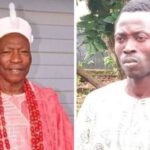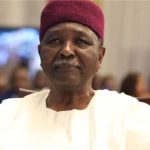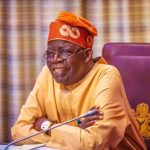The United Kingdom government has finally recognized the Indigenous People of Biafra (IPOB) as a terrorist organisation, directing that the group members should be excluded from its asylum programme.

UK Designates IPOB As Terrorist Group
KanyiDaily recalls that in April 2021, the UK government had announced that it would grant asylum to “persecuted” IPOB members and the Movement for the Actualisation of the Sovereign State of Biafra (MASSOB)”.
But a few days after the policy notes were published, the UK government took it down, following complaints from the Nigerian government that IPOB had been designated as a terrorist group since 2017.
In its May 2022 policy, the UK Visas and Immigration (UKVI) finally designated IPOB as a terrorist organisation to be excluded from its asylum programme over alleged links to violence in the south-east.
Among the atrocities listed by UKVI was the invasion of an All Progressives Congress (APC) meeting in Enugu state where a party chieftain was killed.
Another was the attack on an Imo Police Station where an officer was killed, killing of Anambra residents during enforcement of ”sit-at-home” order; killing of some policemen en route to Anambra International Airport, among others.
The policy reads, “IPOB is proscribed as a terrorist group by the Nigerian government, and members of the group and its paramilitary wing – the Eastern Security Network (created in December 2020) – have reportedly committed human rights violations in Nigeria.
“MASSOB has been banned, but is not a proscribed terrorist group in Nigeria. It too has reportedly been involved in violent clashes with the authorities.
“If a person has been involved with IPOB (and/or an affiliated group), MASSOB or any other ‘Biafran’ group that incites or uses violence to achieve its aims, decision makers must consider whether one (or more) of the exclusion clauses under the Refugee Convention is applicable.
“Persons who commit human rights violations must not be granted asylum.”
The policy brief noted that anyone excluded in this manner is also “excluded from a grant of humanitarian protection”.
UKVI also advised that decision makers must also check if there has been a previous application for a UK visa or another form of leave, noting that asylum applications matched to visas should be investigated before the asylum interview.
According to the British government, establishing a convention reason is not sufficient to be recognised as a refugee.
“The question is whether the particular person has a well-founded fear of persecution on account of their actual or imputed convention reason,” it added.
For an asylum application to succeed, it said the decision-makers must consider each case on its facts, taking into account the legal status, profile, size, and organisation of the group/organisation to which the person belongs and its activities; whether a person in the UK would wish to continue their activism if returned to Nigeria (if not, why not) and whether the group/organisation has a presence in Nigeria as well as outside of the country and any evidence that it is being monitored by the government.
Other considerations include the person’s profile and political activities (including those online) and relevant documentary or other evidence; the profile and activities of family members; past treatment of the person, and evidence that their activities in the UK may have come to the attention of the Nigerian security agencies.
The guidance further noted, “Decision-makers will also need to take into account whether the person supports and is active on behalf of IPOB, which is a proscribed group in Nigeria, and whether they fear prosecution rather than persecution.
“The onus is on the person to demonstrate that they are of interest to the government because of their profile and activities and are at risk of serious harm or persecution.”
The development comes four days after the IPOB was accused of beheading an army couple, who were on their way to Imo State for their traditional wedding.










![Deborah Enenche Welcomes First Child With Her Husband, Samuel Uloko [Video] 17 Deborah Enenche Welcomes First Child With Her Husband, Samuel Uloko [Video]](https://media.kanyidaily.com/2024/12/16151011/Deborah-Enenche-150x150.jpg)
![Ned Nwoko Spends Quality Time With Wife, Laila Charani Amid Rumored Marital Crisis [Video] 19 Ned Nwoko Spends Quality Time With Wife, Laila Charani Amid Rumored Marital Crisis [Video]](https://media.kanyidaily.com/2024/12/16125412/Ned-Nwoko-and-Laila-Charani-150x150.webp)

![Burna Boy And Chloe Bailey Hangs Out Together In Lagos [Video] 23 Burna Boy And Chloe Bailey Hangs Out Together In Lagos [Video]](https://media.kanyidaily.com/2024/12/16095242/Burna-Boy-and-Chloe-Bailey-150x150.jpg)

